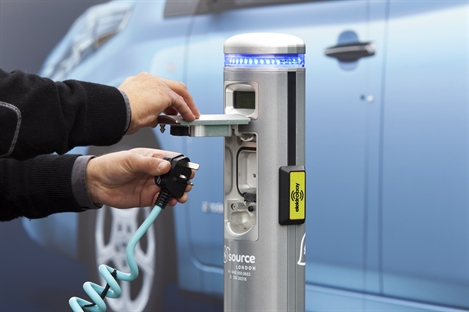26.12.16
Taking a lead on EV
Source: PSE Dec/Jan 17
Poppy Welch, head of Go Ultra Low, talks to PSE’s David Stevenson about the opportunity the public sector has in increasing electric vehicle (EV) take-up.
There is a government aspiration that by 2040 every new car in the UK will be an ultra-low emission vehicle (ULEV), and while this is still the trajectory industry is working towards, “there is still lots to do” to make it a reality.
Speaking to PSE after the recent Go Ultra Low ‘Future of the Car’ Summit, Poppy Welch, head of Go Ultra Low, said that fleets and businesses represent the lion’s share of the UK’s new car buyers, “so have the potential to shape the market and accelerate the automotive market to be entirely ULEV”.
She added that while fleets are doing “brilliantly” in their uptake of EVs, there is work to do. Welch noted that Go Ultra Low, which is a joint government and automotive industry campaign, recently commissioned a survey of UK company car drivers, and found that only 25% of businesses currently offer electric company cars to employees. But of the motorists who are not currently able to go electric, 69% said they would be ‘likely’ to choose an EV as their next company car, if they were made available.
“We know that there is a receptive audience, and we would love companies to consider introducing EVs to their fleets and cars,” said Welch. “As an industry, it is our collective responsibility to give businesses confidence to be bold and realise the multiple benefits that plug-in hybrid and pure electric cars can bring, including cost savings and a carbon footprint reduction.”

Go Ultra Low Companies
In an attempt to highlight and reward the green credentials of organisations offering EVs to their employees, the ‘Go Ultra Low Companies’ initiative was launched earlier this year. Since going live in May, more than 75 organisations have achieved the status, with Transport for London, University of Cambridge, Britvic and London Fire Brigade among those to have signed up.
“Lots of public sector organisations are applying for that accreditation, which is great and I feel shows that they are taking it seriously and are at the forefront of the move towards EVs,” said Welch.
“We are looking to expand that scheme to give the companies a platform to demonstrate their green credentials, and it seems to be popular. We are definitely looking to encourage more and more companies to become Go Ultra Low Companies, and use that status to their advantage.”
She added that over half of the firms to achieve the status so far are public sector organisations, who are acting as “exemplars” for the rest of the country.
 © TfL
© TfL
Correct funding model
Asked whether the government’s efforts to drive EV take-up, especially through the use of competitions, is working, Welch explained that overall £600m has been committed over this Parliament to introduce a range of schemes and initiatives to improve EV adoption.
While acknowledging that money is tight for local authorities, she noted that the £40m funding released through the Go Ultra Low Cities competition scheme, which will see four UK cities become international pioneers of green vehicle technology, is a step in the right direction.
“Those cities that won that funding – Nottingham, Milton Keynes, Bristol and London – are now implementing projects that almost act as an example to other areas in the UK who can use them as case studies to help implementing their own schemes,” said Welch. “I think the hope is that this will then naturally spread across the country and to other cities.
“There are all sorts of initiatives getting underway from the Nottingham eco expressway to Milton Keynes opening up all its parking spaces to EVs. Bristol and Milton Keynes are also looking at introducing EV experience centres, where people can come and try before they buy. These are all good ideas, as well as putting in more charging points.” PSE reported on the developments in Milton Keynes and Nottingham in the October/November 2016 edition.
As well as the Go Ultra Low Cities funding, the government recently announced a £10m investment in electric vehicle charging. Part of a £35m investment in the ULEV sector, the £7.5m funding for workplace charge points, coupled with the £2.5m for residential on-street infrastructure, is set to accelerate electric car uptake by enhancing motorists’ confidence and expanding charging options.
Back in October it was noted that motorists had bought 28,697 electric cars, placing 2016 ahead of last year’s total of 28,188 cars. “Overall sales surpassed last year,” said Welch. “But it would be naïve to say that there isn’t a lot of work to do in order to educate consumers and businesses.
“The whole market is only worth 1.4% of total registrations. There is still a lot of work to do in order to make it a natural choice.”
She added that Go Ultra Low is the voice to ensure consumers and business understand the uses of driving EVs. “It is our role to make sure people have a good understanding of EVs, and that they are not a novelty,” said Welch.
“In many ways it is often easier to persuade businesses, because they can often immediately see cost savings, particularly those with company cars. With consumers it is slightly more difficult, as there are a number of issues that they need to consider.”
Electric Vehicles
FOR MORE INFORMATION
W: www.goultralow.com